Assuming the Best of Others– Learning from the Worst in Others
This has been a couple of weeks! It’s been a series of lessons in assuming the best of others and of learning from the worst in others. Before I go into the full story – be prepared: I am going to bad mouth a company in this article – and you’ll understand why. My policy is to keep things neutral most of the time but to protect all of you from the worst in others, I’m deviating from my usual policy.
Two weeks ago my email got hacked in spite of my faithful policy of changing and having complex passwords (ask my admin who is always asking, What’s the new password again?) Email hacked, and the hackers sent an email to a huge distribution list using my business name to say they needed to pay the attached invoice, just click and open to activate virus.
That’s the worst in others, part one. Part two, I called Intuit Quickbooks (good company) desk to ensure the hackers didn’t actually access my online accounting system as part of their message.
The help desk folks let me know the system was good to go, however, I should be aware that my file size was too large for the services I subscribed to, so an upgrade was needed. This information matched emails I’d seen about size limitations for certain accounts from Quickbooks over the years.
The solution? I would need to upgrade and spend an extra $100 per month to upgrade my online account. At that news, I flipped out a bit because there’s been a history of increasing prices that have impacted my work in a very frustrating way. I insisted this increase was not feasible and demanded options.
Now, remember – Quickbooks is the good company here, so hang in there with me.
The help desk proceeded to tell me I could switch from cloud services to a desktop software, saving about half the cost of the cloud version. I asked a series of questions and in exasperation agreed to the desktop version.
The technician started the install process. Over the next few days, I played with the desktop version and found it similar to a 1980s video game in its graphics and sounds. It wasn’t intuitive. It wasn’t remotely like the cloud version. It was simply frustrating.
I started to explore options of all sorts. Do I outsource all of my accounting? Do I completely switch services and start over somewhere? How many hours would that take me? The process resulted in many hours of wasted thought and time.
Then last Thursday, I was fed up with the new program and I called Quickbooks to tell them I was done. When the Quickbooks desk reported they had no record of my switching to the desktop version, they asked what number I had called. I rattled it off. They asked where I got that number. I said I googled Quickbooks customer service phone number and this was what popped up.
Ready to boo and hiss with me? The number that popped up was an unethical, slimy organization called Intuit Quickbooks ProAdvisor (Note: the name looks and sounds like the real Intuit Quickbooks but with ProAdvisor tacked on to the end). This unethical, slimy company had managed to get their number to the top of the Google search rankings.
Why do I keep saying they are unethical and slimy? They wait for people like me to call, listen to our problem, then offer their solution while never once saying the name of their company or that they are not affiliated with Quickbooks.
They misrepresented themselves through the entire process, leaving me to believe I had talked with the real Quickbooks, then gave me false information about my true account and told me to fix it I had to purchase a different subscription based on their recommended solutions (but again, there was no problem with my real account).
I write all of this first as a cautionary tale. Most of us google the information we are looking for and when the number pops up, we usually take it for the brilliant solution we expect from Google.
Secondly, I tell you all of this because, over the past weeks, I’ve experienced some pretty slimy dealings from the worst of people have to offer. I learned quickly from that experience and will not rely on numbers provided by Google search offerings.
I think that’s all we can do when the worst happens. We learn from it. It’s going to happen. Bad things happen to good people. What I’ve been through has sucked. That’s not a nice term, I know, but it has sucked. However, it taught me a valuable lesson.
Now on to assuming the best in people even when we’ve seen the worst in others. While I will always have a cautionary, wise pause before believing someone is legitimate, I don’t want that to taint my outlook. The majority of the world has some degree of moral and ethical standards that includes the Biblical lesson, “Treat others as you would have others treat you.”
I’m going to continue treating others as I would want them to treat me. In addition, I’ll verify that how they are treating me is how I would want to be treated. Life is about assuming the best and learning from the worst.
Until next time, may your relationships show you the best in others as you learn from my experience with the worst.
Vistage chair, keynote speaker, trainer, and consultant, Sarah Gibson, helps organizations leverage the power of communication, teamwork, and diversity to improve engagement and transform teams.
If you are a CEO or know a CEO who would benefit from a peer advisory group, please contact Sarah at Sarah.Gibson@Vistage.com. To inquire about her speaking programs, please visit www.sarahjgibson.com.



